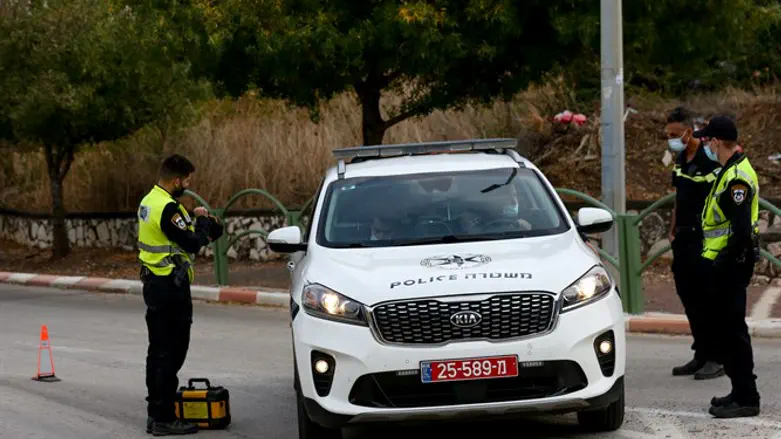
The government will not impose new restrictions over the Hanukkah holiday despite the continued rise in coronavirus cases, it was announced Thursday afternoon.
Prime Minister Binyamin Netanyahu, Defense Minister Benny Gantz, and Health Minister Yuli Edelstein agreed to wait until after the holiday to consider such restrictions following opposition from several ministers in the government.
The proposal for a night curfew will be dropped from the agenda and restrictions under the National Security Council's tightened restraint program will enter into force only when the number of new coronavirus cases reaches 2,500 per day.
Under the Health Ministry draft recommendations which were submitted to the ministers, from December 10 to December 18, from 17:30 in the evening to 00:00 midnight, citizens would have been prohibited from staying in homes other than their place of residence in localities with a Jewish majority.
The proposal to apply a ban on outdoor gatherings of more than 10 people, including on prayers, angered the haredi parties and Minister Rabbi Rafi Peretz also said that he would oppose it in its current form.
At the beginning of the cabinet meeting, Prime Minister Benjamin Netanyahu stated that "morbidity in Israel is among the lowest in the entire world."
"There is what is said in the media and there are the results on the ground. However, we are at the beginning of a third wave," Netanyahu said.
The Health Ministry wrote to the ministers ahead of the government's discussion of the restrictions that "the morbidity indices set for further opening of the economy included conditions of less than 500 new cases per day, and an infection rate of less than 0.8. However, these two conditions are far from present. Israel is advancing towards a wave of similar or more serious illness than the second wave."
